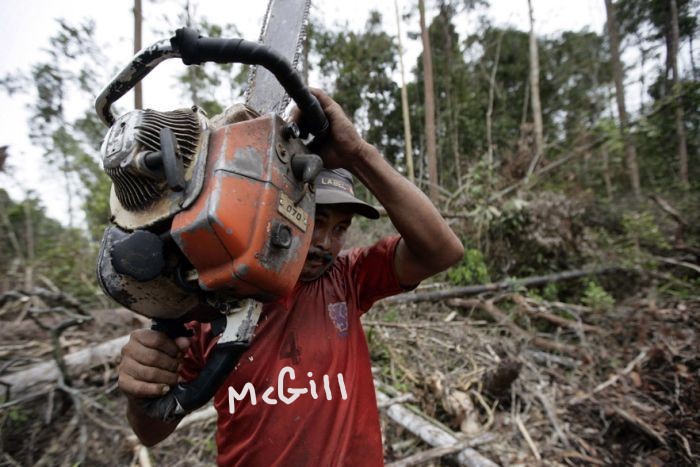Since 2012, Divest McGill has protested McGill’s investment in companies that profit from fossil fuels. The student group has led the charge for climate activism on campus, organizing protests, raising awareness, and gaining the support of the Student’s Society of McGill University (SSMU). Their calls for action largely fell on deaf ears, even after countless vocal protests and sit-ins.. Finally, their voices have been heard.
Over the weekend, Principal and Vice-Chancellor Suzanne Fortier announced that McGill would pull investments from all companies profiting from fossil fuels. According to Divest McGill activists, this comes as some surprise, as the administration is not known to listen to students.
“It’s nice knowing I don’t have to stand outside in the cold anymore to protest,” Muña Zaldrizoti, U6 Arts, said. “But I’m not sure why the administration chose to listen now. I guess anytime is better than no time.”
Fortier held a press conference in her office after announcing the divestment plan. However, the building security did not allow members of the press to enter the James Administration Building.
“I don’t understand why students are confused,” Fortier wrote in an email to the student body. “Of course I couldn’t hear Divest McGill’s message, I had my AirPods in.”
According to Fortier, student groups had no influence on the decision to divest. The primary goal is to re-allocate the funding to more socially responsible investments, which the administration takes to mean “most profitable for McGill.” While the McGill administration would not disclose how the money would be invested, an anonymous source leaked their plans. She desired to be referred to only as “The Lunch Lady.”
“McGill recently purchased a chunk of land in the Amazon rainforest,” The Lunch Lady said. “I saw some blueprints for a huge new McGill campus there.”
The campus would require that 200 hectares of rainforest be clear-cut to install academic and sports facilities, as well as the “McDonald Farm” sponsored by the Golden Arches. According to local members of the community, building the new McGill campus will force an entire residing indigenous community to leave.
The administration sees the campus as an enticing opportunity that will hopefully bring in more applicants to McGill.
“Here at McGill, we strive to expand our students’ horizons and help them experience the world,” Fortier said. “That’s why, with a small extra tuition fee of $30,000, students will be able to enjoy the beauty that is deforestation and displacement of local communities.”







